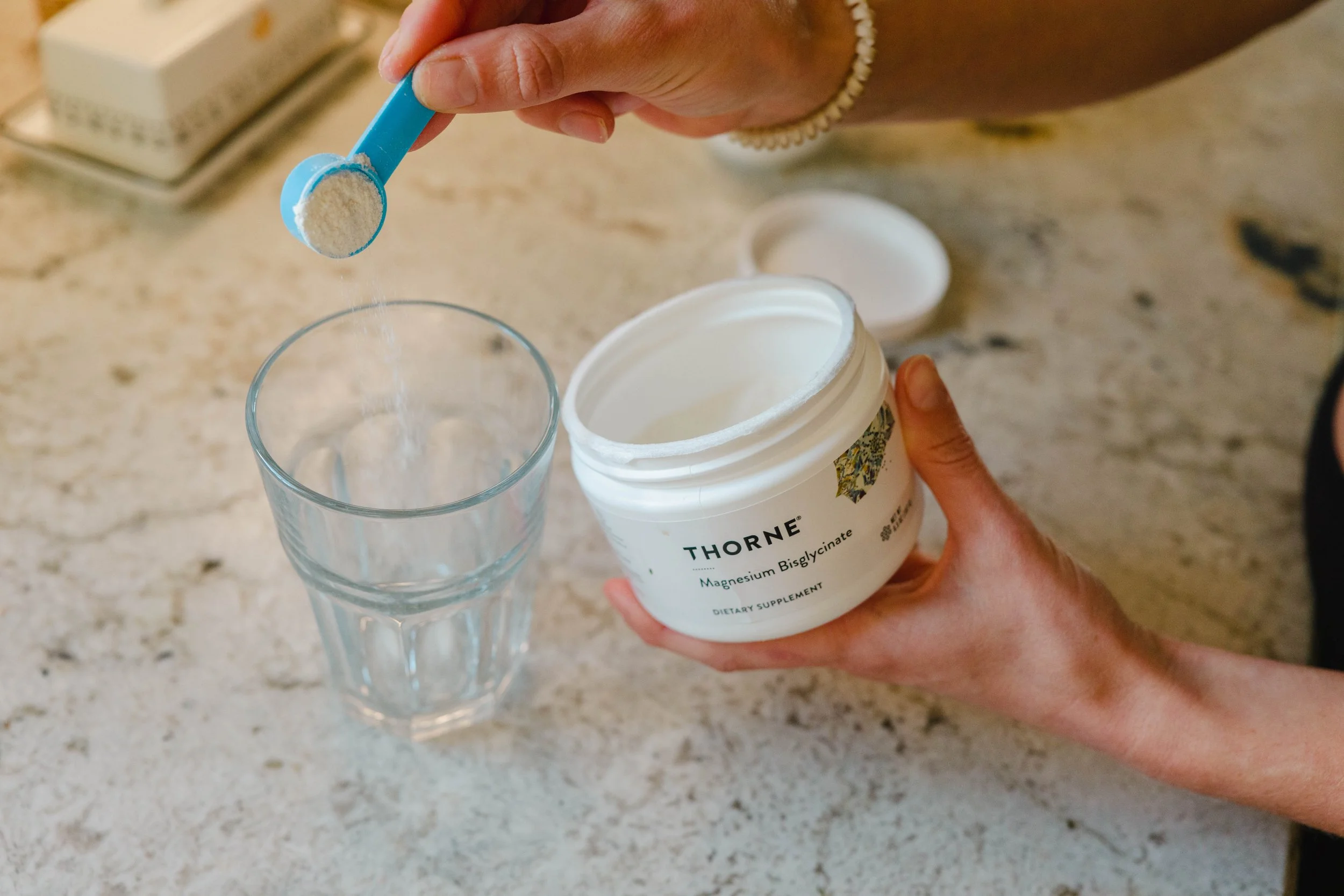My Top 4 Supplements for Menopause
As part of a natural bodily process that occurs when your ovaries stop producing reproductive hormones, menopause can cause a relatively abrupt cascade of symptoms. Because menopause can cause physical and emotional signs such as mood swings, hot flashes, joint pain, difficulty concentrating, and sleep disturbances, it is important to understand how to support your body during this natural transition.
This week’s blog is about my top 4 supplements for menopausal support. Since our bodies change, the right support can make a huge difference!
Vitamin D
More than just a bone health vitamin, vitamin D plays a critical role in immune function, muscle strength, and even mood regulation. Studies show that low vitamin D is linked to an increased risk of osteoporosis, metabolic changes, and cardiovascular disease—especially in menopause when estrogen’s protective effects decline. Since many women are deficient, supplementation is key.
Test vitamin D levels - optimal is at least 50 (ng/mL)
I recommend supplementing with 5,000 IU (or 125 mcg) Vitamin D plus vitamin K2 is my typically recommended dose. Vitamin K2 is needed for optimal vitamin D absorption, so it’s best to take a supplement that has both.
Omega 3 Fatty Acids
These essential fats (EPA & DHA) are crucial for brain function, heart health, and reducing inflammation. Research suggests omega-3s can help with cognitive function, mood stability, and even support metabolic health—areas that can shift dramatically in menopause. Since our bodies don’t produce them naturally, supplementation is a great way to ensure you’re getting enough.
I recommend at least 1-2g of omega-3s (EPA/DHA) per day.
Magnesium glycinate
Magnesium glycinate is especially helpful for menopausal women because it supports both the nervous system and hormone balance during a time of major transition. Here are a few known benefits magnesium glycinate has for overall health:
Promotes Better Sleep: Menopause often disrupts sleep due to night sweats, anxiety, or cortisol spikes. Magnesium glycinate contains glycine, which has a calming effect on the brain and helps promote deeper, more restful sleep.
Supports Mood & Reduces Anxiety: As estrogen drops, so do its mood-stabilizing effects. Magnesium is essential for GABA production, a calming neurotransmitter, and the glycinate form is particularly good at crossing the blood-brain barrier to ease irritability, mood swings, and tension.
Muscle Relaxation & Fewer Aches: Magnesium helps with muscle tension, cramping, and joint stiffness, which can show up more during menopause due to hormonal changes and inflammation.
Supports Heart & Bone Health: Magnesium is a quiet hero for cardiovascular health and also works with vitamin D and calcium to support bone density—which becomes more of a concern post-menopause.
I recommend at least 200-300mg magnesium glycinate every evening
Creatine
Although creatine is often associated with athletes, it’s a game-changer for menopausal women. Creatine supports muscle strength, cognitive function, and cellular energy production—all of which decline with age. Research shows creatine supplementation can help preserve lean muscle mass, improve brain function, and even support bone health. If you’re lifting weights (which you should be in menopause), creatine is an incredible tool for strength and longevity.
I recommend 5g creatine monohydrate daily, even on days that you do not lift weights.
For a full list of my top menopause supplements, click the link here for my “Menopause Toolkit.”
Want to learn more about how to support your body through menopause and other hormonal changes?
Tap below to learn more!


